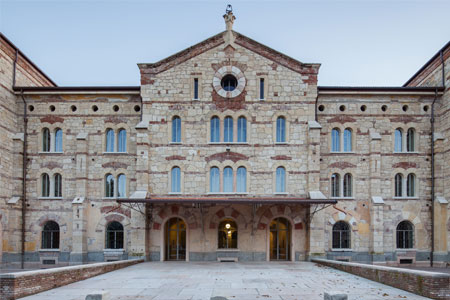The project’s objectives take into account the most relevant challenges the Romanian wine sector will face in the next years. They are primarily determined by the new environmental and competitive contexts, that involves:
a) the market demand dynamics and the equilibrium conditions of supply and demand;
b) the impact on the cultivation of vines caused by the climatic changes, that are mainly related to global warming;
c) the gaps in the Romanian wine sector compared to the main production countries, both in the “old” and the “new” worlds;
d) the need to overcome the traditional weakness of the Romanian wine sector, that are connected to the social, economic and structural aspects;
e) the environmental sustainability of the processes concerning the adoption of new techniques in the Romanian vine ecosystems to reduce the effects of global warming.
On this basis the overall objective of the project is to provide new scientific knowledge and operational methods to enhance and improve the agro-productive potential of different vine varieties under stress climatic conditions in Romania.
The project’s specific aims are:
1) The evaluation of climatic change as a risk factor on the different species of vines during the annual biological cycle.
2) The delimitation in time of the main phenological phases of the annual biologic cycle of the vine varieties to be studied concerning climatic conditions imposed by the global warming to evaluate the impact of the changing climatic conditions on the capacity of the plants to adapt and improve agro-productive potential.
3) The evaluation of the eco-physiological reactions of different varieties of vine in relation to the conditions of climatic stress caused by the global warming. in order to test some physiological methods to increase the resistance of the vine varieties to the climatic stress conditions; through this results the project wants to encourage the adoption of new processes to highlight the value of the agro-productive results.
4) The evaluation of the impact of more resistant vine varieties on the performance regarding the quality and quantity of the grapes produced.
5) The evaluation of the impact of more resistant vine varieties on the environmental sustainability of the new viticulture with particular regards to the reduction of the residuals due to chemical fertilizers and pesticide treatments, as well as to the valorisation of links with meso and micro-zones.
6) The evaluation of the economic impact determined by resistant vine varieties in terms of private and public costs and benefits; in order to define efficient policy measures to support the adoption of innovation and to evaluate the impact of alternative solutions using the cost-benefit analysis methods.
The proposed project, in coherence with the overall and specific objectives stated above, has different types of expected results.
Advances in the knowledge concerning: i) the effects of the climatic stress conditions on vine cultivation in the Moldavian region; ii) the plant’s adaptation mechanisms for different vine varieties in various viticulture ecosystems; iii) the identification of integrated patterns of behaviour to push innovation processes characterized by environmental and economic sustainability. These results will be disseminated through: articles published in national and international scientific reviews (recognised by CNCSIS or indexed by CAB International), articles in proceedings of national and international scientific conferences (enclosed the scientific symposiums of the Romanian U.S.A.M.V.), working papers discussed in the project’s seminars, reports which represents deliverables of the work packages described above. Up-dated lists of these research products will be available on the project’s website. Definitive lists with summaries of the contents of research products will be published into specific reports.
Identification of new technological processes which can be directly implemented by farmers. The project provides results, using the case study approach, which can be applied in the vineyard design, planting and management to improve the agro-productive potential. These results are supported by studies on the economic sustainability both for private and public stakeholders. They also take into account the different viticulture areas of north-east Romania as well as the strengths and weaknesses of the spreading into the wine sector. Intermediate and final reports, a guide, a compendium and proceedings of conferences and seminars represent specific outputs for these kind of results.
Development of R&D capacity in the host institution. These kind of results are both qualitative and quantitative. Qualitative results involve the cross-dissemination of scientific knowledge inside the project research group through seminars, meetings, discussions in large and small groups. These results will involve each level of researches who will share the multidisciplinary approach characterizing the methodology implemented by the project. The impact of qualitative results on young project’s researchers (also including Ph.D students and PhDs) is emphasized through their wide participation in all phases of research also involving the dissemination activities. Quantitative results concern the work opportunities that the project will provide for young researchers (ten) and laboratory technicians (eight). Thanks to the project implementation these people will find temporary jobs (three years). It will permit them to acquire specialized competencies which can be use in the labour market, not only in an academic career.
Competitive improvement and sustainable development. Further results of the project are: i) the definition of benchmarks to measure the competitiveness improvement and coherence with the sustainable development principles at micro, meso and regional levels; ii) the identification, through an interactive discussion process with policy makers and stakeholders, of policy recommendations and measures to provide effective implementation of the scientific and technological results. Specific output for these results are the Vin.Eco.Challenge Compendium and the Final Report to NASR.
For a more detailed description see the attached impact study







